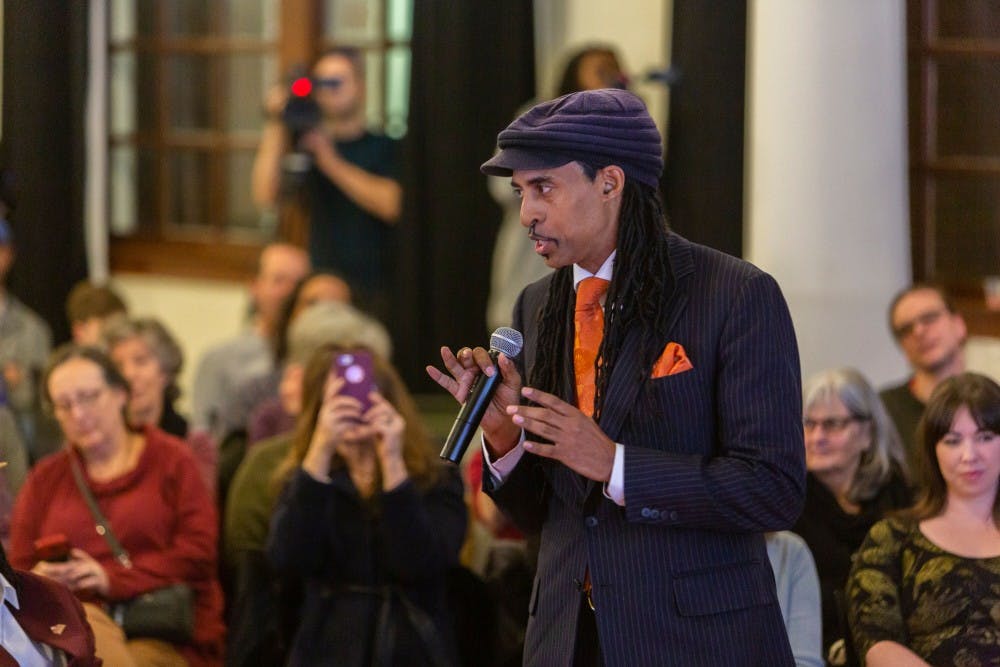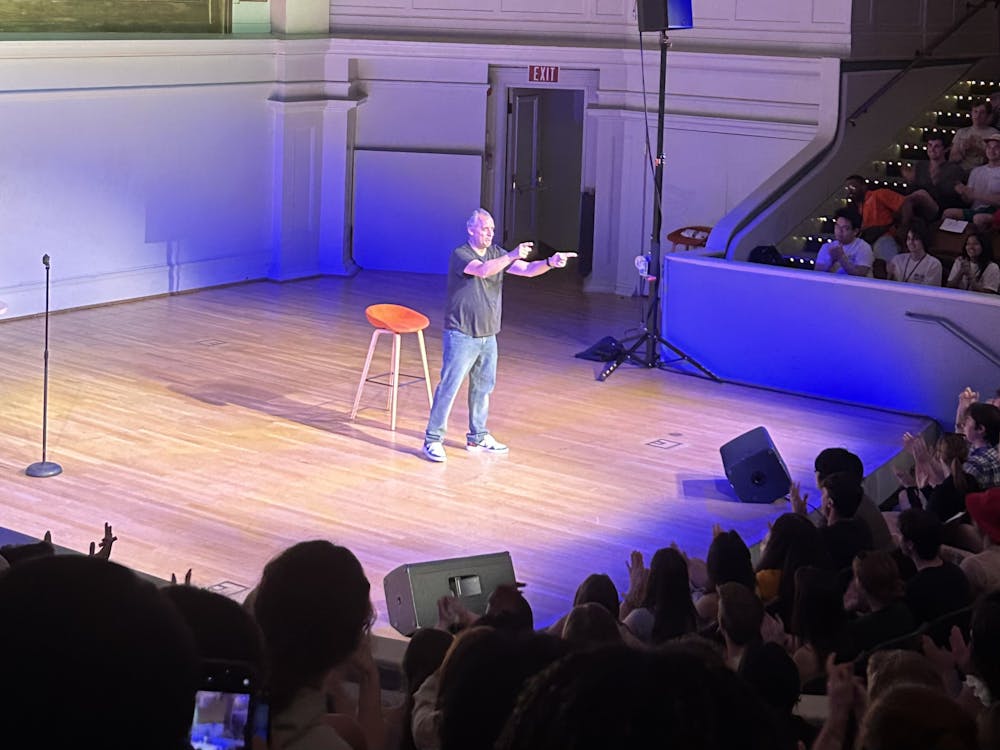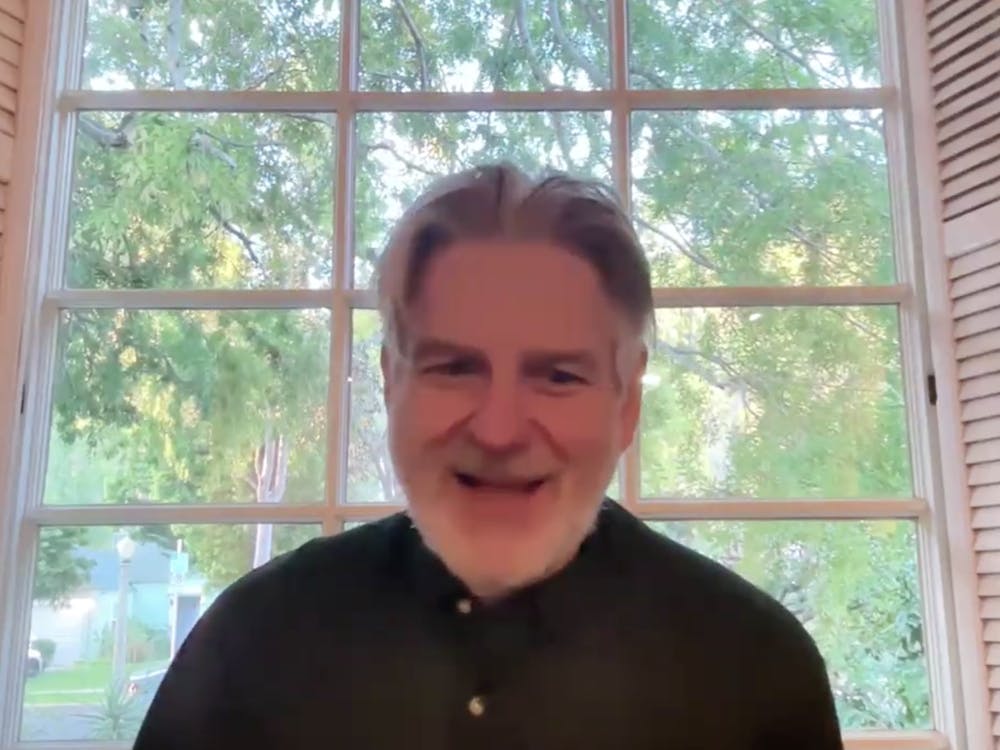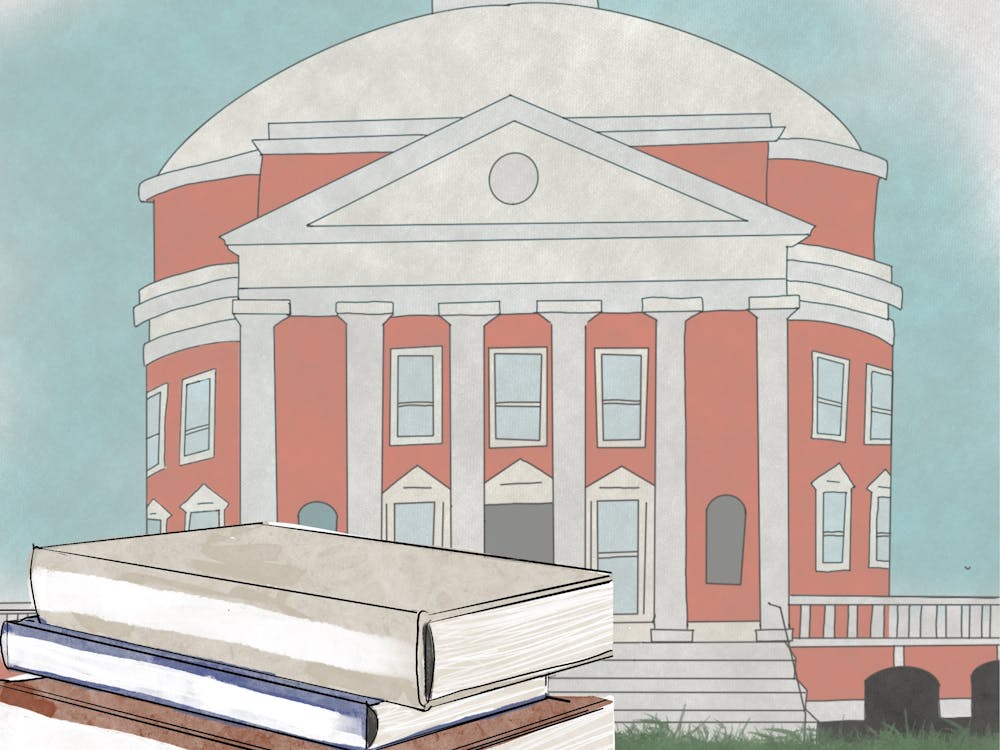The concept of mixing environmental justice and hip hop doesn’t necessarily strike as a likely marriage, but that isn’t how Vanessa Moses, fourth-year College student and head of Black Leaders for Environmental Sustainability, sees it. At an event hosted by U.Va. Sustainability and Nine Pillars Hip Hop Cultural Festival Jan. 25, Moses reckoned that Martin Luther King Jr. assisted in approaching environmental issues and the growing fight with climate change because of his continuous promotion of thinking in a new way.
The audience stood with palms outstretched and joined with the person next to them. The crowd stirred with their own hope for change as well as with a further understanding for the generation to come’s role in this crucial choice to care about the Earth’s treatment.
Speaking to future generations through hip hop — something key speaker Mustafa Ali reasoned to the primarily older audience — isn’t just about music that emphasizes “gangsta” behavior. It’s also about a continuous awareness and education of street knowledge. This includes learning about the conditions of a planet where lower-income black and Latinx neighborhoods and rural areas are predominantly supplied with poor quality drinking water, unclean air and natural space contaminated by capitalist desires to expand harmful fossil fuels, like the Atlantic Coast pipeline.
This is something that Ali emphasized — having grown up in the coal fields in West Virginia, he shared his own experience while staying focused on rallying the crowd into concern by asking questions like, “Raise your hand if you have drinken water in the last 24 hours… if you’ve taken a breath.” Everyone had their hands up, some of them laughing slightly at the obvious nature of the answer, but the shared necessity was even more plain. Ali kept at this to raise awareness of the necessity of keeping the climate change fight inclusive to people from every walk of life, making environmental justice a civil rights issue by offering the truth of this common crisis.
“If this is what the revolution for environmental justice looks like, we are dead. I’m serious,” said Ali. He was referring to the demographics of the people listening to him speak — a group of primarily affluent, older people. The audience didn’t laugh at that one, but some nodded their heads and shifted with anticipation. Ali went on to explain that the movement can’t be one that’s halted by it’s whiteness and age, but rather needs to be one that is communicated to the younger generation — the one listening to hip hop.
Those hip hop listeners may be able to connect with a music idol more than a Ph.D. environmentalist, especially through hearing the lyrics of rappers that may be concentrating on shifting vulnerable communities from surviving to thriving. Take Common’s song on Flint, Michigan, for example. “Trouble in the Water” describes with catchy synth “water dirty like the police that floods the streets.” With the help of Hip Hop Caucus, a non-profit that aims to instill political activism in young adults using hip hop culture, Common created the song that addressed the lack of clean water in Flint. The music provides an intersection point between politics and entertainment and gives the youth a greater sense of urgency and relevance. This may lead them to realize the kind of power they possess to implement actual change.
This event was characterized by the youth’s sense of their power in the room — from Moses’ place on stage to every student standing next to the compost bins directing the placement of every utensil, cup and article of food into the waste free destination.
The Hip Hop Caucus visitors from Union Hill, Richmond spread a belief about instilling power in the future generation of lawmakers, lawyers and activists — asking the crowd to raise their fist into the air and repeating “Power!” for the sake of encouraging everyone to act and reinforcing the triumph of inclusion over exclusion. Terence “TC” Muhammed, a speaker from the Hip Hop Caucus noted how often people claim that had they lived in a historic era of civil disobedience, they would have participated in the fight for equity. “You’re in that era now. So whatcha gonna do about it?” he said.
This article previously misstated that the Voices for Change event was hosted by the Jefferson School African American Heritage Center, when the event was hosted dually by U.Va. Sustainability and Nine Pillars Hip Hop Cultural Festival. This article has been updated to reflect the error.





